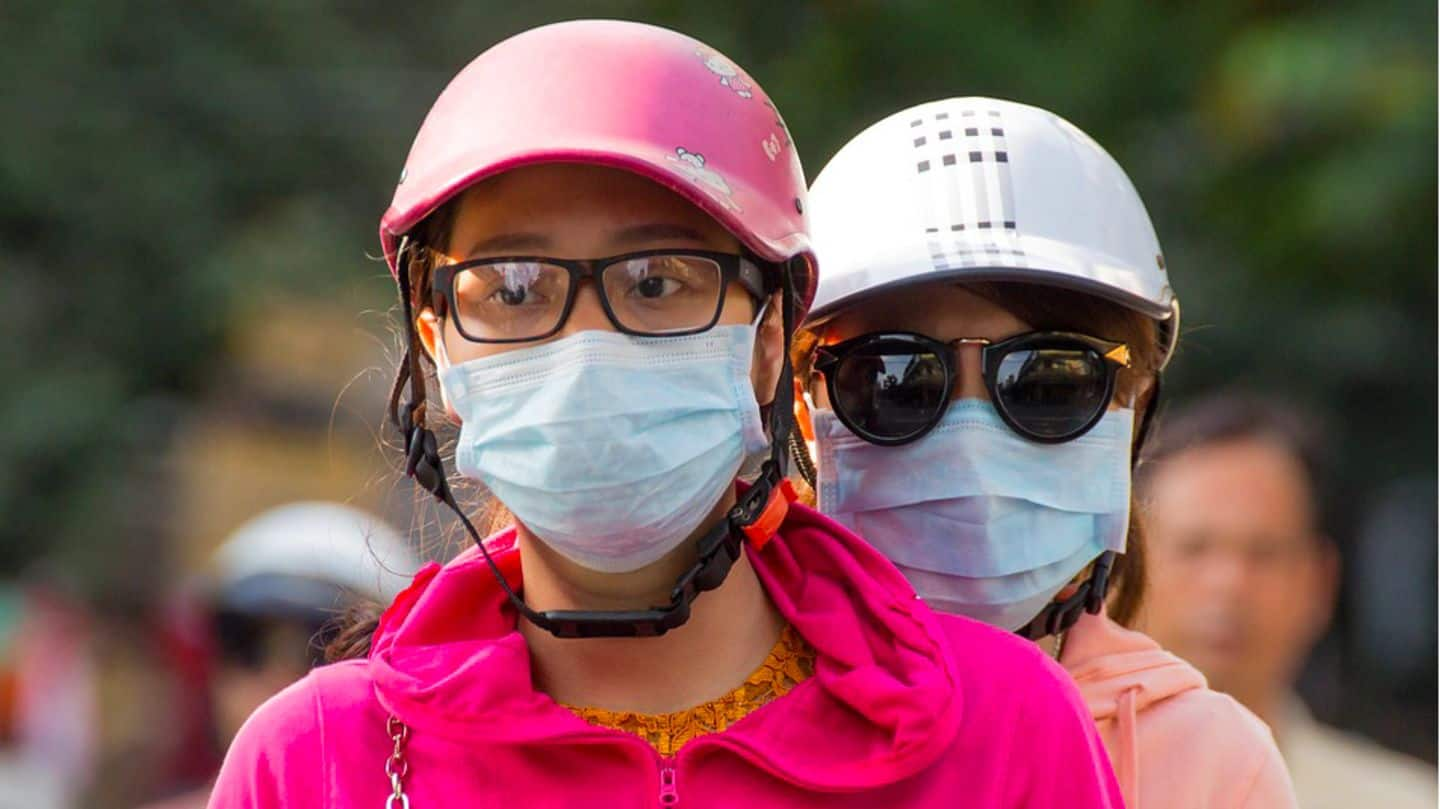
Delhi's air-quality deteriorates to 'very poor' for first-time this season
What's the story
Delhi's air quality for the first time this season deteriorated to 'very poor' category with several areas in the national capital nearing towards severe levels of pollution, according to authorities.
The overall Air Quality Index (AQI) of Delhi was recorded at 309 today, according to a data of the Center-run System of Air Quality Forecasting and Research.
Here's more.
Information
Criteria for evaluating Air Quality Index
An AQI between 0 and 50 is considered 'good', 51 and 100 'satisfactory', 101 and 200 'moderate', 201 and 300 'poor', 301 and 400 'very poor', and that between 401 and 500 is categorized as 'severe'.
Data
PM10 level stood at 287, PM2.5 at 131
Today, Anand Vihar recorded an AQI of 380, Dwarka Sector 8 registered AQI of 376, ITO recorded 295, and Jahangirpuri recorded an AQI of 349, Rohini an AQI of 353, according to the Central Pollution Control Board (CPCB) data.
The PM10 level (presence of particles with a diameter less than 10 micrometers) in Delhi stood at 287 and PM2.5 level was recorded at 131.
Factors
Factors deteriorating air quality include vehicular pollution, construction activities
This is the first time this season that the air quality deteriorated to 'very poor' category.
Further deterioration of air quality is forecast in the coming days with PM10 to reach 330 and PM2.5 to 151.
An official with the CPCB said a number of factors are responsible for the deteriorating air quality, including vehicular pollution, construction activities, and meteorological factors.
Main reason
Wind flowing from stubble burning areas also causing air pollution
Among meteorological factors, the main reason is the drop and change of wind speed flowing from the stubble burning areas.
The deterioration of air quality comes days after the implementation of an emergency plan to combat air pollution.
GRAP (Graded Response Action Plan), notified by the Ministry of Environment, Forest, and Climate Change in 2012, prescribes a set of measures to curb air pollution.
Action
CPCB deployed 41 teams to monitor steps for combating air-pollution
The emergency plan, GRAP, gets implemented if 'very poor' or 'severe' air pollution levels are recorded for 48hrs, but given the extent of winter pollution witnessed by Delhi, the plan has been implemented as the air quality slipped to the 'poor' category, the official said.
In addition, CPCB has also deployed 41 teams to monitor the implementation of measures taken to combat air pollution.